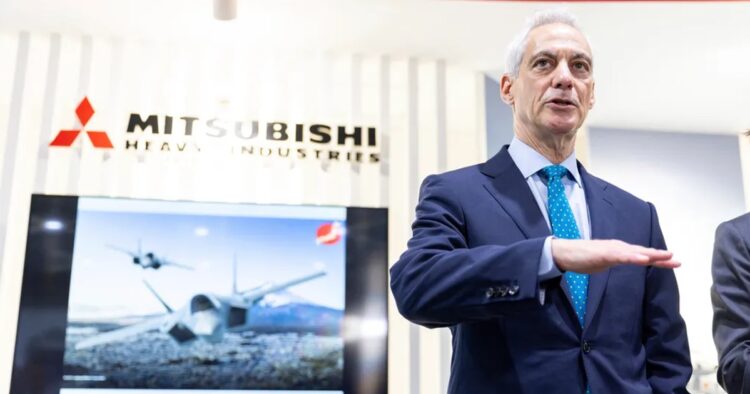In a step to tackle rising strategic challenges in Europe and Asia, the United States and Japan have initiated discussions on military-industrial cooperation. The talks come amid increasing strains on defense industries and a shifting global security landscape.
The U.S. Ambassador to Japan, Rahm Emanuel, highlighted the necessity for collaboration between the two countries, emphasizing the importance of handling multiple theaters of conflict effectively.
The discussions, which mark the commencement of the U.S.-Japan Forum on Defense Industrial Cooperation, Acquisition, and Sustainment (DICAS), were inaugurated in Tokyo. This forum, established in April by Japanese Prime Minister Fumio Kishida and U.S. President Joe Biden, signifies a significant step towards strengthening bilateral defense ties. The talks aim to explore avenues for deeper collaboration in defense industry sectors.
Key agenda items include naval repairs in Japan, which could potentially alleviate pressures on U.S. shipyards, allowing for increased production of warships.
With China rapidly expanding its shipbuilding capabilities, there’s a growing urgency for strategic alliances to maintain naval superiority. Emanuel emphasized the need for cooperation in areas such as aircraft repairs, missile production, and bolstering military supply chain resilience.
The existing collaboration between Japan and the U.S. in missile defense highlights the potential for further joint ventures. Both nations jointly manufacture a missile defense interceptor, showcasing successful cooperation in defense technology. In addition, Japan has agreed to supply Patriot PAC3 air-defense missiles to the US, further solidifying their partnership in defense capabilities.
ALSO READ: “U.S. Warns of Potential Nuclear Arsenal Expansion Amid Escalating Global Tensions”
Tuesday’s discussions between US Under Secretary of Defense for Acquisition and Sustainment William A. LaPlante and Masaki Fukasawa, head of Japan’s Acquisition, Technology, and Logistics Agency, will delve into specific areas of cooperation. As both countries navigate complex security challenges, these talks represent a crucial step towards enhancing collective defense capabilities and ensuring regional stability.
The outcomes of these discussions are anticipated to pave the way for closer collaboration between the United States and Japan in addressing shared security concerns. By leveraging each other’s strengths and resources, the two nations aim to bolster their defense capabilities and adapt to evolving geopolitical dynamics.
As strategic partners, the U.S. and Japan are poised to play a crucial role in maintaining peace and security in the Asia-Pacific region and beyond.

















Comments